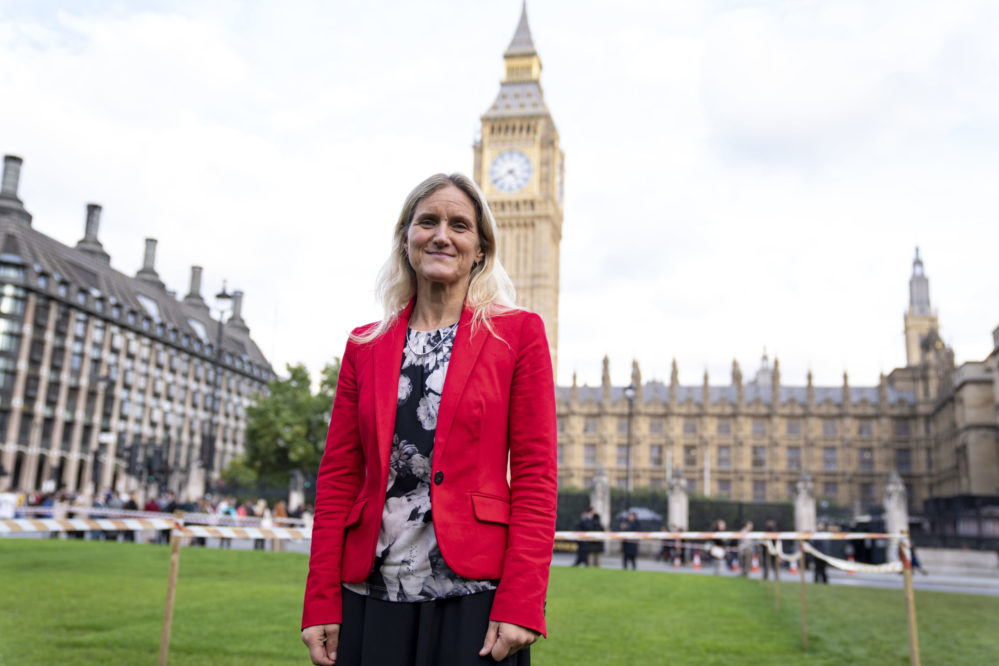Nurses urge MPs to embrace ‘historic opportunity’ to change law on assisted dying

A group of nurses has urged MPs to embrace a “historic opportunity” to change the law on assisted dying, but opposition campaigners have claimed a new Bill is “being rushed with indecent haste”.
The wording of the proposed legislation is expected to be published within days.
Scrutiny
MPs will debate Labour MP Kim Leadbeater’s Terminally Ill Adults (End of Life) Bill on November 29 – the first such debate in the Commons in almost a decade.
Ms Leadbeater has already indicated eligibility will depend on how long a patient is expected to have left to live, while both medical and judicial safeguarding is likely to feature in the form of approval from doctors and court scrutiny in each case.
Seven current and former nurses have sent a letter, published by campaign group Dignity in Dying, to MPs – urging them to support the Bill.
The signatories, including two palliative care nurses, a general nurse and a senior nursing assistant, said: “We are joined by a single wish – all of us want choice.”
They added: “For most, palliative care in hospice, hospital or at home will help them have the death that they want.
“But we feel we have to speak up for those for whom palliative care cannot relieve suffering, or provide the peaceful and painless death that everyone deserves.
“It is these people that need choice, and for them that we urge you to support the Terminally Ill Adults (End of Life) Bill.”
“Indecent haste”
Dr Gordon Macdonald, chief executive of Care Not Killing, insisted MPs must reject the Bill, saying “the safest law is the one we currently have”.
He said: “This Bill is being rushed with indecent haste and ignores the deep-seated problems in the UK’s broken and patchy palliative care system, the crisis in social care and data from around the world that shows changing the law would put pressure on vulnerable people to end their lives.
“Indeed, the problems in end-of-life care, which have been chronicled in great detail in numerous academic and official reports have been explicitly recognised by our new Health Secretary and many other parliamentarians, who want to fix the system, not change the law. We agree with them.”
Health Secretary Wes Streeting has expressed his intention to vote against the Bill, saying he is concerned about palliative care “not being good enough to give people a real choice”.
He told ITV’s Good Morning Britain last month: “I worry about the risk of people being coerced into taking this route towards the end of their life.”
Lines drawn
High-profile voices for change include Dame Esther Rantzen, who is terminally ill, while the Archbishop of Canterbury Justin Welby and actor and disability campaigner Liz Carr have voiced their opposition.
If the Bill clears its first hurdle at the end of November, it will face line-by-line examination in committee and further Commons votes before being sent to the Lords where the process begins again, meaning any change in the law would not be agreed until next year at the earliest.
It is possible that MPs could vote against it on November 29, as they did the last time changes to the law were considered in 2015, preventing it going any further.
MPs will have a free vote in Parliament, deciding according to their conscience rather than along party lines.
Prime Minister Sir Keir Starmer has previously supported assisted dying, but said the Government will remain neutral on the issue.
Support our Nation today
For the price of a cup of coffee a month you can help us create an independent, not-for-profit, national news service for the people of Wales, by the people of Wales.






All nurses have seen their patients die in one way or another at sometime in their career and know the full facts of what’s happens. This should go out to the people to vote on NOT MP’s who have many personal reasons why it should not happen . How can MP’s be judges on this THEY CANNOT BE THAT. Example any MP who is catholic will automatically say no because of religious teaching in their beliefs, that’s not taking into consideration those who are suffering. Parliament is not the place to judge this only the people can